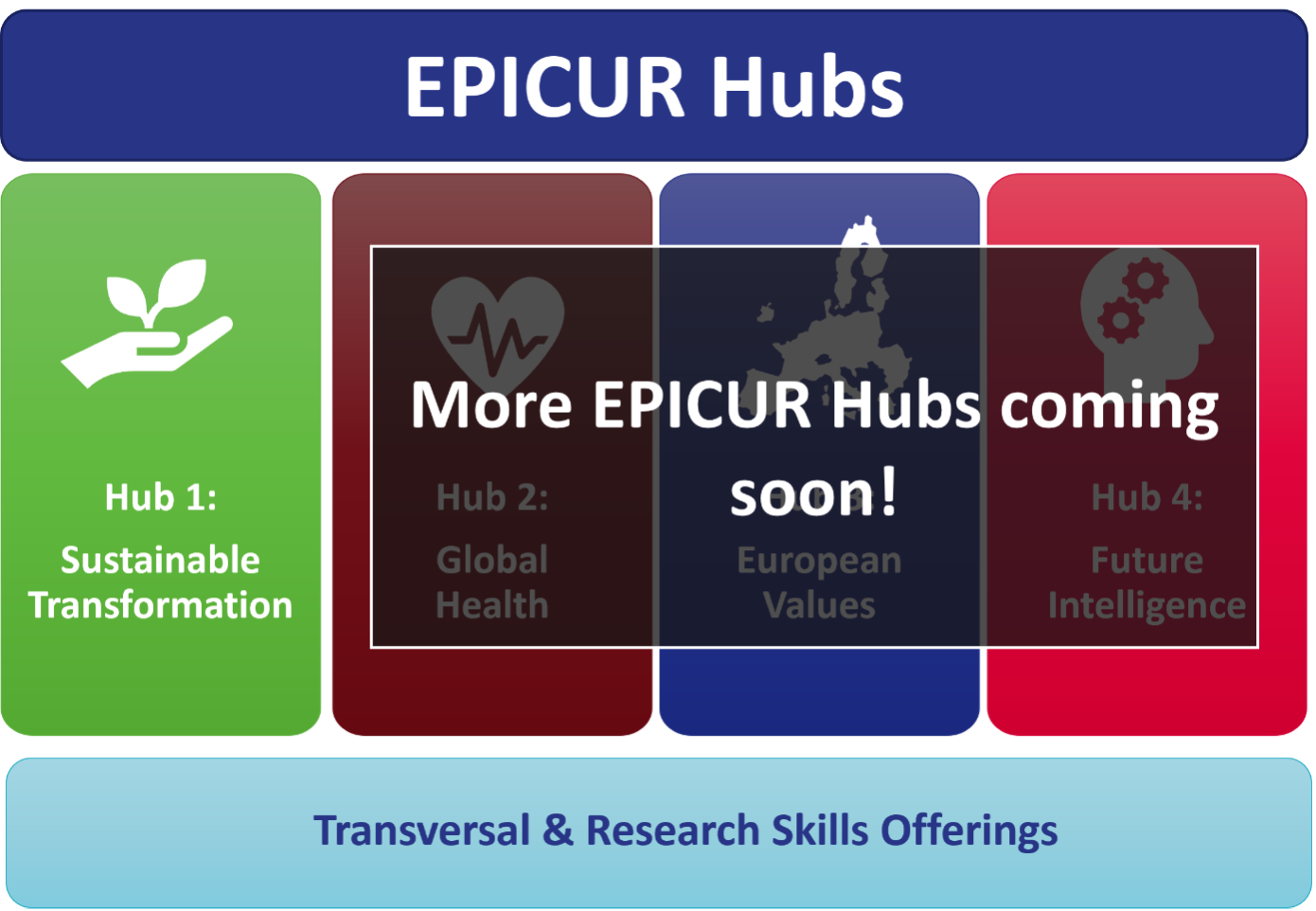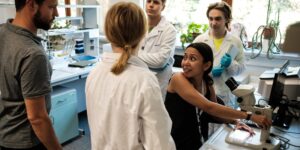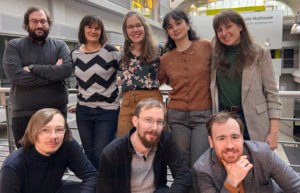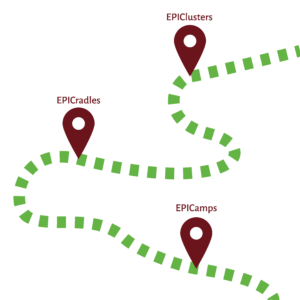The EPICUR Hubs are virtual centres for research-oriented learning, training and networking across the EPICUR European University Alliance. Tailored for Master’s students and Early Career Researchers (ECRs), the Hubs aim to foster interdisciplinary collaboration, support innovative research and prepare participants for diverse academic and non-academic careers.

Each Hub focuses on a key societal challenge, including:
- Sustainable Transformation
- European Values
- Global Health
- Future Intelligence
These thematic areas are supported by transversal skills training to prepare participants for diverse careers in and beyond academia.
🌐 Start your journey in the EPICUR Hubs Virtual Space – your central access point for courses, events, mobility opportunities and research collaboration across Europe.
Inside the EPICUR Hubs: Voices from the Early Career Researchers (ECR) Board
Who Are the EPICUR Hubs For?
- Master’s students aspiring to a research career
- Early Career Researchers (ECRs), including:
- Doctoral candidates
- Postdoctoral researchers
What Do the EPICUR Hubs Offer?
🌍 The Hubs Virtual Space
📚 Courses & Training Programmes
🤝 Networking Opportunities
The Pilot Hub: Sustainable Transformation
The Sustainable Transformation Hub was launched in April 2025 and acts as the pilot model for future hubs. Key features include:
- A curated programme of courses and workshops
- The rollout of the Virtual Space and access to EPICUR’s research ecosystem
- A research conference in October 2025
- Integrated support for transversal competencies and collaboration across disciplines




